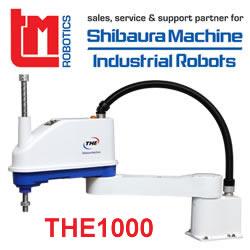Kickstarter - Embeddetech Introduces Virtuoso Software: The World's First Embedded Virtual Device Framework
Virtual embedded software development for professional and student designers of custom electronics, launching a Kickstarter campaign June 20th
TULSA, Okla., June 13, 2016 /PRNewswire/ -- Embeddetech,Inc. announced the launch of a Kickstarter crowd-funding campaign beginning June 20th, with the goal of accelerating the commercialization of its 'Virtuoso' software. Virtuoso is a powerful virtual device framework targeted for professional and student designers of custom electronics. The software allows custom electronic printed circuit board hardware, also known as "embedded systems," to be virtualized for development. This means that firmware application developers can drag-and-drop commonly used components like LEDs, touch screens, and keypads, or develop new components from scratch, and start developing applications.
Prior to Virtuoso, firmware developers have been unable to easily write and test embedded source code unless the physical electronic PCB assembly hardware is available. With Virtuoso, a fully functional replica of the hardware is used to speed up firmware development while the hardware is developed in parallel. For companies that develop custom electronics and must deal with the project management challenges of designing custom hardware and software together, the virtual device development workflow can translate to substantial savings in development costs as well as accelerated time to market.
Virtuoso - The World's 1st Embedded Virtual Device Framework (Kickstarter)
Virtuoso - The World's 1st Embedded Virtual Device Framework (Kickstarter)
Virtuoso: The World's First Embedded Virtual Device Framework
Jonathan Torkelson, President of Embeddetech, envisions Virtuoso being widely adopted by both students and professionals.
"As an electrical engineering student, I benefited enormously from an internship program with the Oklahoma Center For The Advancement Of Science And Technology," said Jonathan. "Internships allow students to benefit from the experience of applying theory to solve real-world problems. With Virtuoso, students can download and run virtualized real-world problems, making it easier to gain crucial hands-on experience. This new virtual device workflow solves many of the logistical problems of getting that experience."
A graduate of the University of Tulsa's Electrical Engineering program, Jonathan also serves on the department's Industrial Advisory Board. One of the company's goals is to work with undergraduate students to develop virtualized example problems to augment theory-rich classes such as Digital Systems, Digital Signal Processing, Control Systems, Robotics, and Artificial Intelligence.
"We look forward to getting this technology in our students' hands and seeing what applications they can make with it, without having to spend any money on hardware," said Dr. Kaveh Ashenayi, the Chairman of the University of Tulsa's Electrical Engineering Department.
Following a successful product launch expected in Q1 of 2017, Embeddetech plans to bring photo-realistic real-time 3D virtualization to embedded software development using Unreal Engine, a powerful game engine developed by Epic Games. Embeddetech has developed a second framework which adapts Unreal Engine to Microsoft's .NET Framework, allowing business applications to leverage the power of the modern 3D game development workflow
Embeddetech has other tools for professionals, college students, and makers on its roadmap.
Embeddetech is a research and development company, with offices in Tulsa, Oklahoma and Uttar Pradesh, India. Founded in 2003, Embeddetech services a wide variety of industries in the design of embedded systems. The services are wide-ranging, including electromagnetic compliance testing, custom printed circuit board design, embedded firmware development, PC application development, and applied research.
Featured Product

